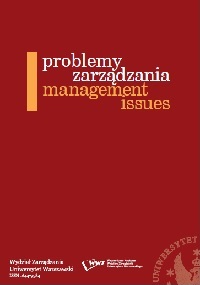The Influence of the Evolution of Economic Activity in the Late Middle Ages and the Renaissance on the Emergence of the Dualistic Concept in Accounting
The Influence of the Evolution of Economic Activity in the Late Middle Ages and the Renaissance on the Emergence of the Dualistic Concept in Accounting
Author(s): Jan TurynaSubject(s): Economic history, 13th to 14th Centuries, 15th Century, 16th Century, 17th Century, Accounting - Business Administration, Socio-Economic Research
Published by: Wydawnictwo Naukowe Wydziału Zarządzania Uniwersytetu Warszawskiego
Keywords: socio-economic processes; evolution of accounting; double accounting; Middle Ages; Renaissance;
Summary/Abstract: Purpose: The purpose of this study is to demonstrate that the basic assumptions of double accounting were created by the same premises that contributed to the revival of humanistic trends in Europe in the 13th-14th centuries, especially in the socio-economic sphere. Approach: This is a historical overview of the section of the literature devoted to the rise and evolution of double entry accounting. The study is the result of research and literature studies, based on Polish and foreign sources. Conclusions: It can be stated with full conviction that accounting as we know it today is a product of the end of the Middle Ages, and especially of the early period of the Italian Renaissance in Italy. The preserved documents show that the accounting based on double entry, in the period of the thirteenth and fifteenth centuries, was shaped in several stages. First, it covered receivables and liabilities, initially by banks, then by other companies, and then, other assets were entered twice: goods, cash and liabilities. The use of equity in accounting led to the inclusion of result events in the accounting records. At this point, the entity’s accounting became a closed system as we know it today. Limitations: Taking into account a large number of - especially foreign-language - source materials on the origin of accounting, only a small part of these sources were analyzed and cited during the preparation of the article. It seems that the topic is worth further research and literature studies. Practical implications: The study is primarily epistemological in nature, not focused on economic practice. Originality: It is one of the few studies in accounting in Poland devoted to the origins of accounting based on double entry and its evolution as a result of economic development in Europe in the late Middle Ages and early Renaissance.
Journal: Problemy Zarządzania
- Issue Year: 18/2020
- Issue No: 4 (90)
- Page Range: 147-162
- Page Count: 16
- Language: English

